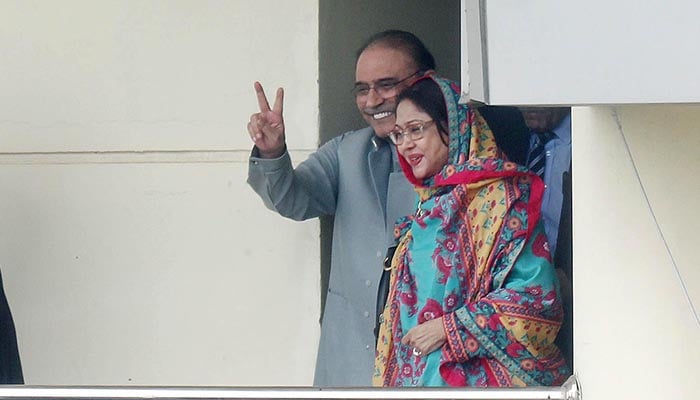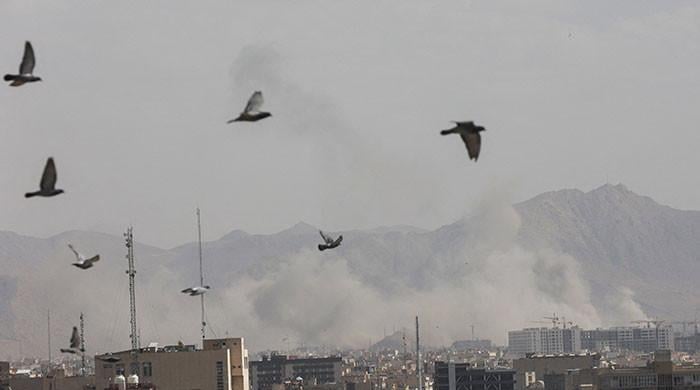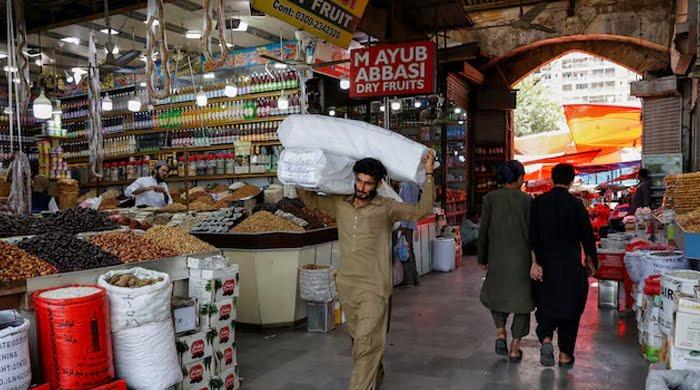What's Asif Ali Zardari’s next move, or is it checkmate already?
In the end, we all are left asking: Can the master player avoid checkmate?
September 26, 2018

My friend Aizaz Syed keeps a hawk-like eye on developments in the political arena. In one of his recent news reports, he makes a startling prediction. Asif Ali Zardari, the former president of Pakistan, and current co-chairman of the Pakistan Peoples Party will soon be incarcerated due to the ongoing fake bank accounts case, he writes.
It is rumoured that just like the Joint Investigation Team (JIT) that was formed for former prime minister Nawaz Sharif’s trial, the JIT formed for this case will present boxes full of incriminating documents before the courts.
Let us go back in time to a couple of months before the general election. Evidence, we were told, was being gathered against Zardari. He knew what was happening, thus he came up with a two-pronged strategy. One, to not let the election be delayed at any cost. Two, to not enter any kind of an alliance with the Pakistan Muslim League-Nawaz (PML-N). Hence, on the one hand, provide the impression that the PPP will not support Sharif and thus be accorded leniency; and on the other hand, sail through the national polls before any sort of accountability was to take place. It was a win-win formula. Well, at least till the polls were held. No one would want to take on both the PML-N and the PPP at the same time.
But that was then. Now, whispers of a probe against Zardari are growing louder. Although, the charges are not new. They can be traced back as far as 2014 when Pakistan Tehreek-e-Insaf’s (PTI) street protest had almost managed to dislodge Nawaz Sharif’s government. In that tumultuous period, the PPP had come out all guns blazing in the government’s support. Soon after, there was gossip among the political elite that investigations were opened into Zardari’s money matters. Particular attention was paid to finding a money trail, and that too in the province where the PPP was ruling.
The sugar mills in Sindh were strictly monitored to find out who was receiving illegal payments in the former president’s name. Finally, four people were identified and cuffed. They signed admissions of guilt and produced documentary evidence.
Zardari knew that the proverbial noose was being tightened. To ward off any further probes, he became more vocal in his criticism of the PML-N government. This wasn’t just a defence tactic, the PPP leader was also harbouring genuine resentment against the PML-N government for abandoning him and launching a paramilitary operation in Sindh. Moreover, many of Sharif’s federal ministers had been openly opining about the Sindh government’s alleged corruption. Zardari’s support in 2014 for the then-prime minister had also resulted in anger within his own party ranks. The PPP was being called a friendly opposition, and the jab bothered workers who blamed it for the party’s downfall, especially in Punjab.
Zardari had thought that by seeking revenge and shrugging off the friendly opposition tag, he would do enough to stop or at least delay the investigations against him. But it was not to be.
Advisers told Zardari to hand over the reins of the party completely to his son Bilawal Bhutto Zardari. Time had come, they said, to move away from the spotlight. But he was vehemently opposed to the suggestion.
In the political world, the former president is known as a shrewd player. Of late, he has come out in the open to play the moves that he previously orchestrated from the shadows. His plan now is to delay all possible inquiries and investigations for four months, which is when the judiciary and other administrative bodies go through changes at the top. Perhaps, he expects a less adverse atmosphere at that time.
He also knows that Sindh will react negatively to all talk of the Kalabagh Dam, which has reared its head after many years of being on the back burner. It will become more difficult to take unilateral action against a Sindhi leader.
The truth is that though Asif Ali Zardari and Nawaz Sharif may be political behemoths, their opponent now is Imran Khan, who has mastered the art of successfully explaining the most complex of matters to the general public. Zardari and Sharif are far more experienced than Khan, but both are unaware of the modern techniques of oration. Sharif could not give a clear-cut timeline of steps that lead to the acquisition of the Park Lane flats in London, and neither could Zardari when it came to accusations of money laundering.
If Sharif and Zardari think that matters have been brushed under the carpet, they cannot be more wrong. Khan knows well the art of pulling out this very dust when need be. He has used the conventional media and social media to a much greater advantage than his rivals have. But now that he leads the government, he will have to back up his words with actions. Any contradiction in the two will be PTI’s Waterloo.
‘Project Decriminalisation of Politics’ has almost neutered Muttahida Quami Movement (MQM) and the PML-N. It is now the PPP’s turn. But Zardari still has a couple of aces up his sleeve. One is the Sindh card, which will come into play if the controversial Kalabagh Dam is pursued. The other is an alliance with Nawaz Sharif, about whom the PPP has softened its tone. They both may be weak at this point in time, but a coming together of these two political giants will have far-reaching implications for Pakistan.
Long ago, Asif Ali Zardari had faced almost a decade in jail with such determination that even his ideological opponent, Majeed Nizami, was forced to acknowledge his resolve. 2018 is an altogether different beast. Zardari suffers from diabetes, heart disease and hypertension. He often needs to walk with support. Most importantly, he no longer desires a confrontation. Yet, Zardari’s old nemesis still view him as corrupt.
In the end, we all are left asking: Can the master player avoid checkmate?











